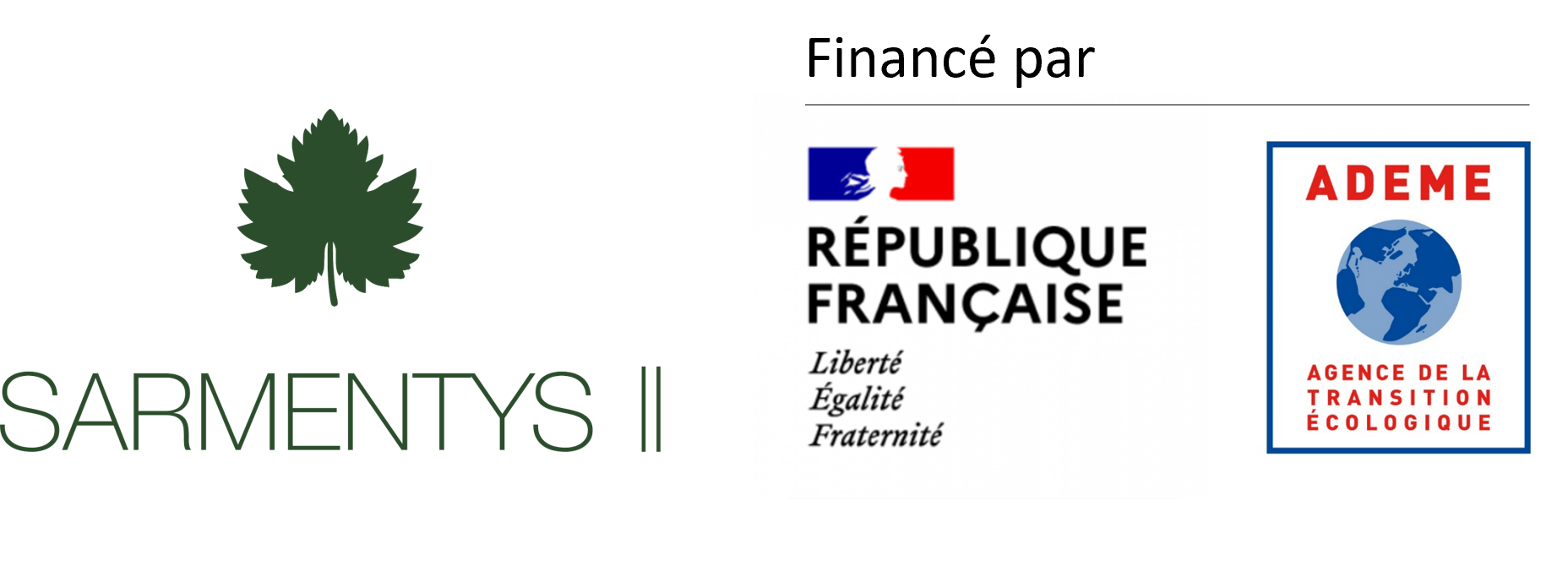
SARMENTYS II

2022-2025: National feasibility project for the eco-design and development of an insulating material based on vine shoots that complies with technical and environmental building regulations
France has 800,000 hectares of vineyards, the quantity of agricultural by-products generated by the activity of these farms is estimated at more than 1.6 million tons per year. Vine shoots represent 93% of this biomass and wine growers are responsible for their recovery or disposal. To date, there is no collection or treatment channel, the vine shoots are burned or crushed.
However, none of these options are suitable, the first is prohibited because of its environmental impact and the second participates in the propagation of vine diseases. However, their cellulose and lignin content and their porosity ensure that the vine shoots have a mechanical and thermal resistance similar to that of chenevotte. Once crushed in the form of aggregates, vine shoots could then be used in the composition of insulating construction materials, such as biosourced concrete.
How will the SARMENTYS II project be organized?
The SARMENTYS II project is a collaborative project between the Aquitaine general masonry company NEVEU, accompanied by two partner laboratories specialized in construction materials, BUILDERS Engineering School in Caen and ENTPE in Lyon.
The project is organized in 2 axes:
- The first part consists of studying the feasibility of eco-design of the insulation by carrying out technical tests and environmental assessments on each material and method that would allow to obtain the desired material. The best solution will be selected and kept for the second part;
- The second part aims at developing the insulation by studying the durability of its hydro-hygrothermal performances at different scales (material and wall) in order to validate its behavior in laboratory. Its environmental performances will be observed at different scales: material, wall and building.
In order to achieve these objectives, the technological barriers identified are based on the eco-design of the desired product and on the use of vine shoots as an insulating material.
And after SARMENTYS II?
The objective of SARMENTYS II is to obtain a global vision of the environmental, technical and economic consequences of the possibilities studied, to choose the best option, and then to develop an insulator that performs better than the reference solution.
During SARMENTYS III, it is planned to build a demonstrator building to study the behavior of the insulation in its real environment, indoors and outdoors. For this purpose, industrial partners will join the project, some have already been consulted. The recovery of data will make it possible to evaluate the durability of the material and to validate a technical opinion or a certificate of experimentation in order to prepare its marketing.
Project partners

Funders
Le projet est financé par l'ADEME, via l'AAP Perfecto 2022 à hauteur de 466 000 euros sur un budget total de 587 000 euros (soit 79%).